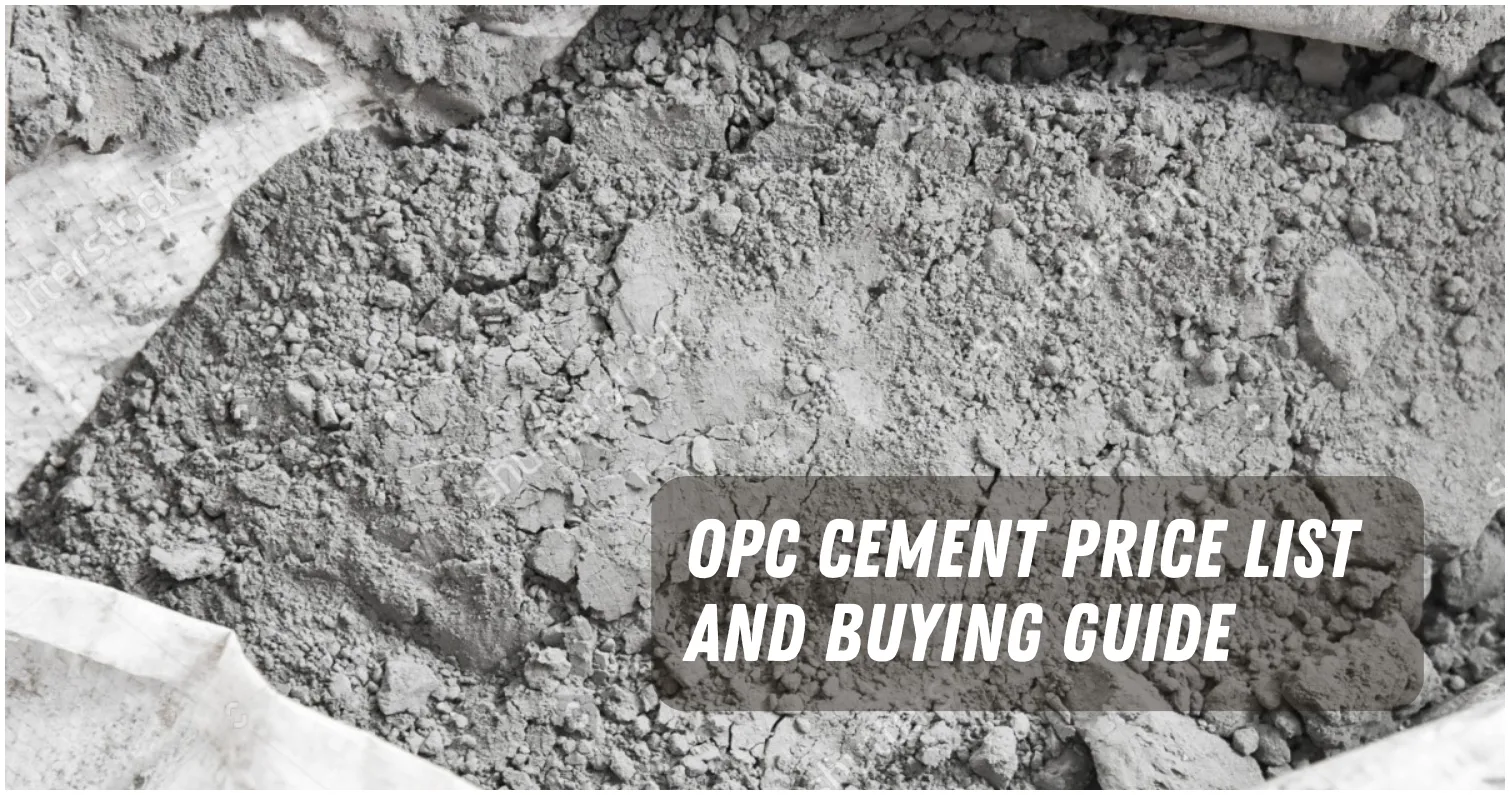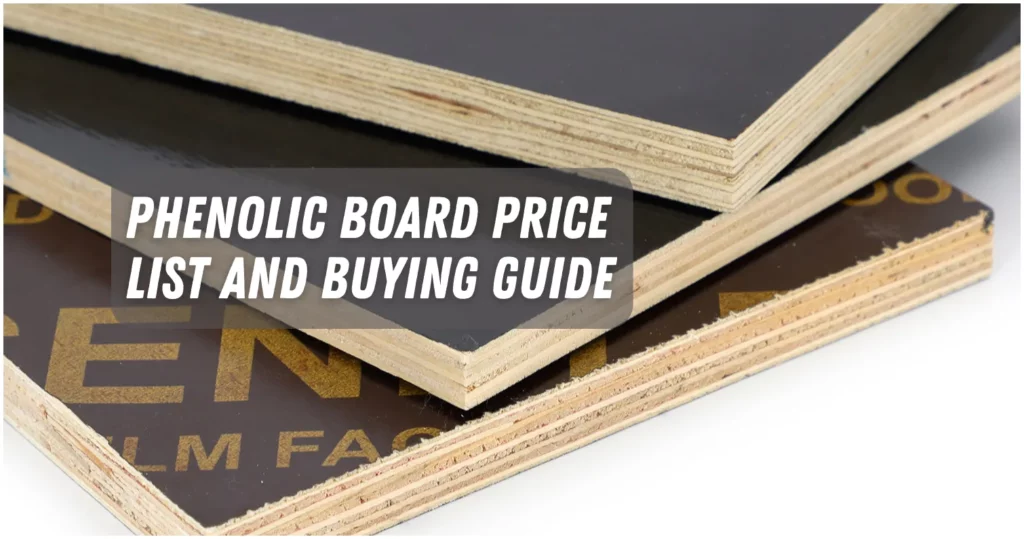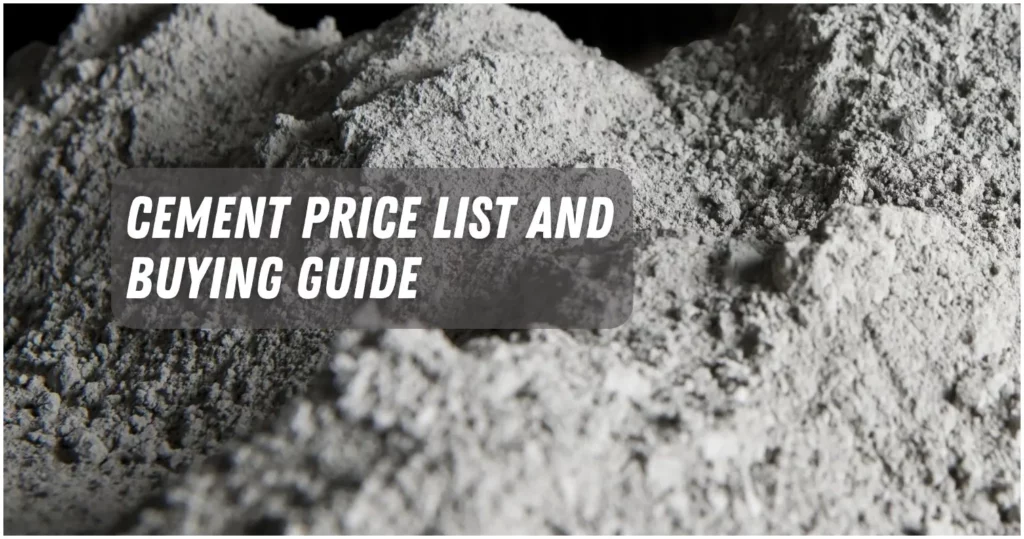If you want to build or renovate your house or other structure, you should use OPC cement because it is flexible uses and has a low price.
Ordinary Portland Cement, or OPC, is the most common type of cement in the Philippines. The price ranges from ₱220 to ₱260 per 40 kg.
But what is OPC, and how is it different from other kinds of cement?
In this article, we will talk about OPC cement price list in Philippines as well as its properties, uses, pros and cons, and the most common questions about it.
What is OPC?
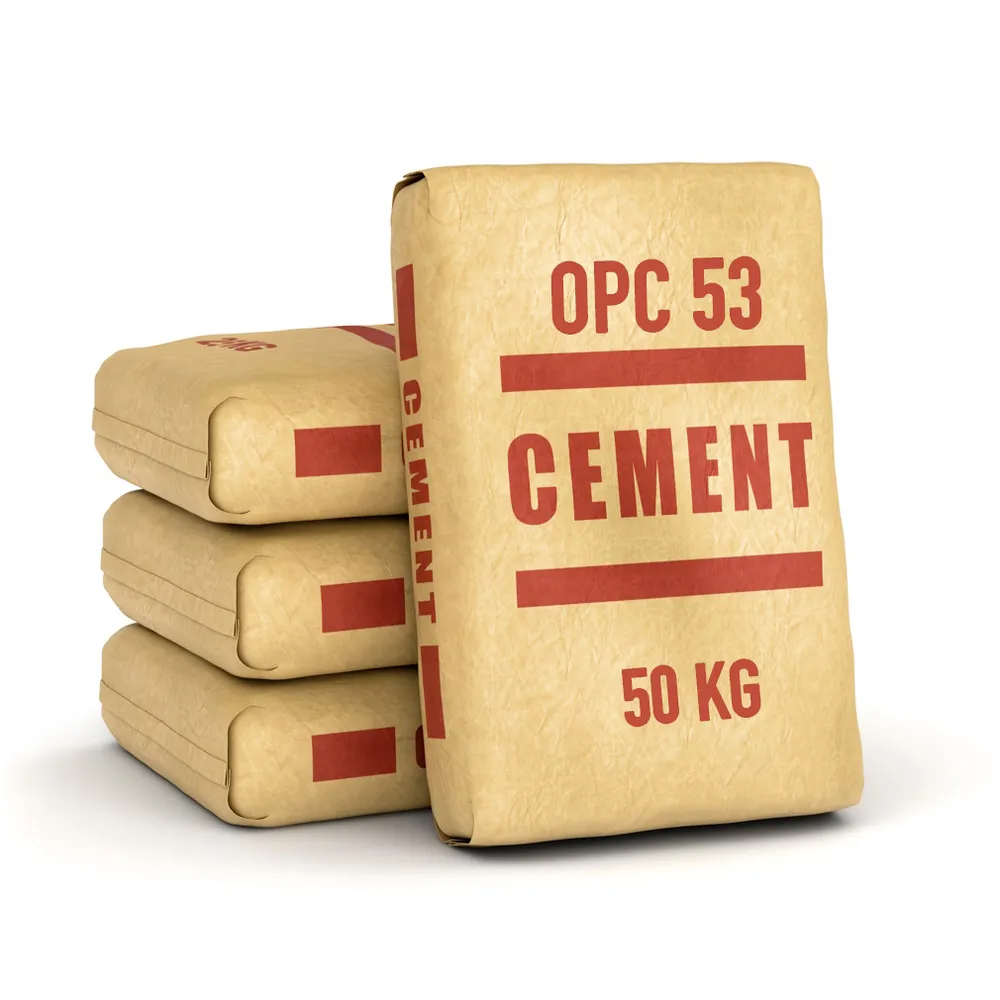
Ordinary Portland Cement (OPC) is a type of cement that is made by grinding clinker and gypsum together.
Clinker is a lumpy substance made by heating limestone and clay in a kiln to very high temperatures.
Gypsum is a mineral that helps control how long cement needs to harden.
OPC is the most common type of cement in the world because it can be used for many different things and lasts for a long time.
Ordinary Portland Cement Properties
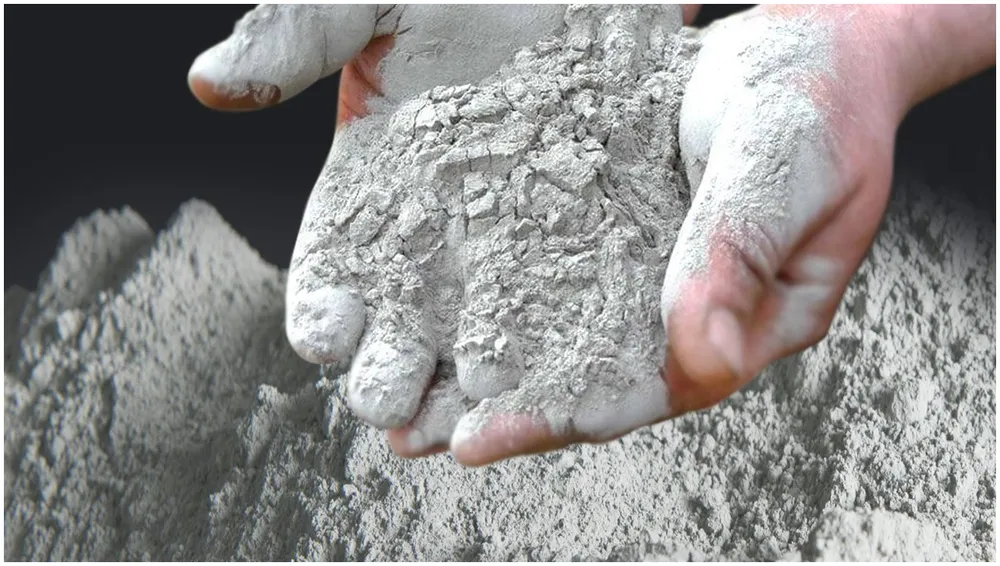
OPC cement is widely used in construction due to its favorable properties:
- Strength: OPC has a high compressive strength, which means it can take a lot of pressure without breaking. It also has a moderate tensile strength, which means that it can stand up to pulling forces without breaking.
- Setting Time: OPC has a quick setting time, which means that when mixed with water, it hardens quickly. This can help speed up construction, but because you only have a short amount of time to work with it, you have to be careful.
- Workability: OPC is very workable because it is easy to mix, place, and shape. Additives can be used to improve certain properties or make it easier to work with.
- Durability: OPC is very durable and can stand up to the effects of weather, chemicals, and corrosion. By adding supplementary cementitious materials (SCMs) like fly ash, slag, or silica fume, it can be made stronger and have better properties.
Ordinary Portland Cement Uses
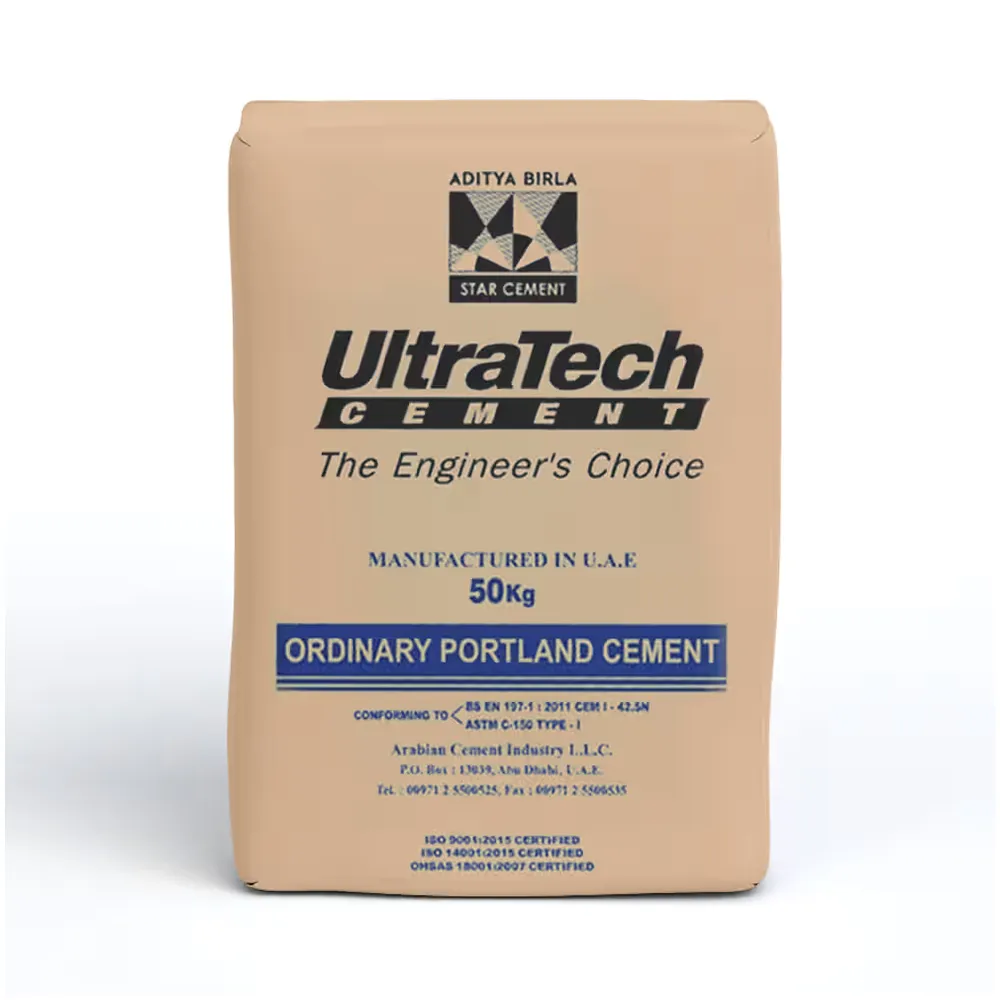
OPC can be used for various construction purposes, such as:
- Concrete: OPC is the main ingredient in concrete, which is a mixture of cement, sand, gravel, and water. Concrete is a common material for building foundations, walls, floors, beams, columns, slabs, bridges, roads, dams, and other structures.
- Mortar: OPC is also used to make mortar, which is a mix of cement, sand, and water. Mortar is used to hold together bricks, stones, blocks, tiles, and other building materials.
- Plaster: You can also use OPC to make plaster, which is a mixture of cement, sand, water, and sometimes lime. Plaster is used to smooth out rough spots on walls, ceilings, and other surfaces.
Ordinary Portland Cement Price List
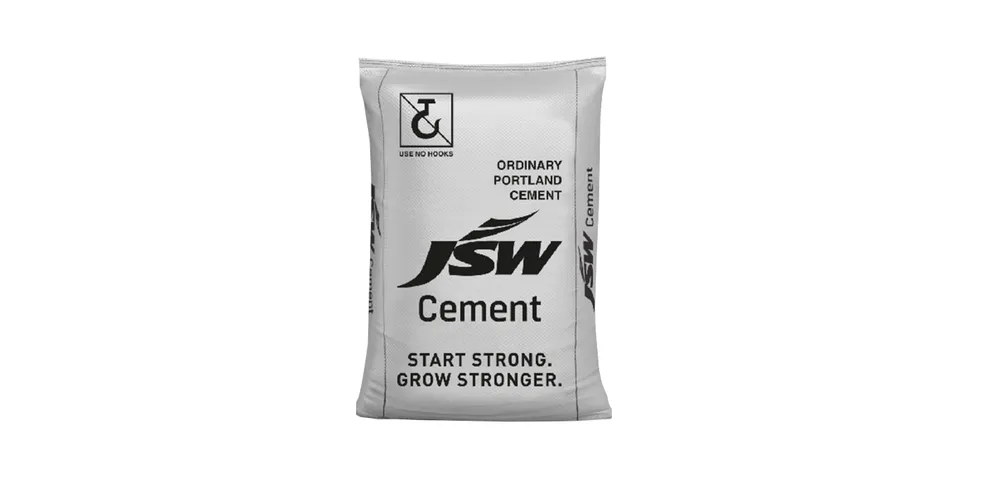
The price of OPC in the Philippines varies depending on the brand, quality, quantity, and location.
The table below shows some of the prices of OPC cement from different sources
| Brand | Quality | Quantity | Price |
|---|---|---|---|
| Holcim | Excel | 40 kg bag | ₱260 |
| Republic | Type 1P | 40 kg bag | ₱255 |
| Republic | Forte | 40 kg bag | ₱235 |
| Eagle | Advance | 40 kg bag | ₱250 |
| Cemex | Rizal Gold | 40 kg bag | ₱225 |
| Apo | Premium Plus | 40 kg bag | ₱220 |
| Cemex | Rizal Portland Super Type 1P | 40 kg bag | ₱245 |
| Grand | Premium Type 1P | 40 kg bag | ₱240 |
These prices are subject to change without prior notice and may vary depending on the availability and demand of OPC in different areas.
OPC vs PPC
In the Philippines, Portland Pozzolana Cement (PPC) is a common type of cement.
It is different from Ordinary Portland Cement (OPC) in a few ways. Here are some of those things.
- PPC contains pozzolans, which are substances that react with lime to make more binding compounds.
- PPC has a lower compressive strength than OPC, but it lasts longer.
- PPC takes longer to set and has a lower heat of hydration than OPC.
- It can stand up better to attacks from sulfates and alkali-aggregate reactions.
- PPC is better for the environment because it uses less clinker and less power.
- Whether you choose OPC or PPC depends on the needs of your construction project:
- OPC is best for projects that need to be strong and set quickly, like bridges, dams, and tall buildings.
- PPC is best for projects that need to last a long time and make little heat, like roads, pavements, and foundations.
Ordinary Portland Cement Pros and Cons
OPC has its own pros and cons, just like any other type of cement. Here are some of them:
Pros:
- OPC is strong and durable, which makes it a good choice for most structural uses.
- OPC is easy to work with and works well with a variety of aggregates and additives.
- In the Philippines, OPC is easy to find and cheap.
Cons:
- OPC sets up quickly, which can limit the amount of time you can work with it and requires careful handling.
- OPC has a high heat of hydration, which can cause large concrete structures to crack and shrink due to heat.
- Because making OPC uses a lot of energy and releases carbon dioxide when making clinker, it has a big carbon footprint.
Things You Should Know about OPC Cement
Before using OPC for your construction project, here are some things you should know:
- What is the difference between Portland cement and OPC?
Portland cement is a general term for cement that meets ASTM C150. On the other hand, OPC is a type of cement that meets ASTM C150 Type I.
- Can we use OPC cement for wall?
Yes, you can use OPC cement to build walls by making mortar out of it with sand and water. Not good for putting up drywall.
- Can we use OPC cement for plastering?
No, OPC cement is not good for plastering because it sets quickly and makes a lot of heat when it hydrates. You should instead use Masonry Cement or PPC.
- What is the strength of OPC cement?
The strength of OPC cement changes based on things like the materials used and how long it has been there. In general, it is stronger, with a minimum strength of at least 20 MPa after 3 days, 27.5 MPa after 7 days, and 41 MPa after 28 days (ASTM C150).
- Is OPC good for foundation?
Yes, OPC is a good choice for foundations because it is strong and lasts a long time. For large concrete foundations, you might want to use Type II or Type V Portland cement with SCMs or admixtures to reduce the heat of hydration and make the concrete last longer.
The price of OPC cement in the Philippines depends on the brand, quality, quantity, and location.
You can check the latest prices of OPC online or in your local hardware stores.
[ratings]